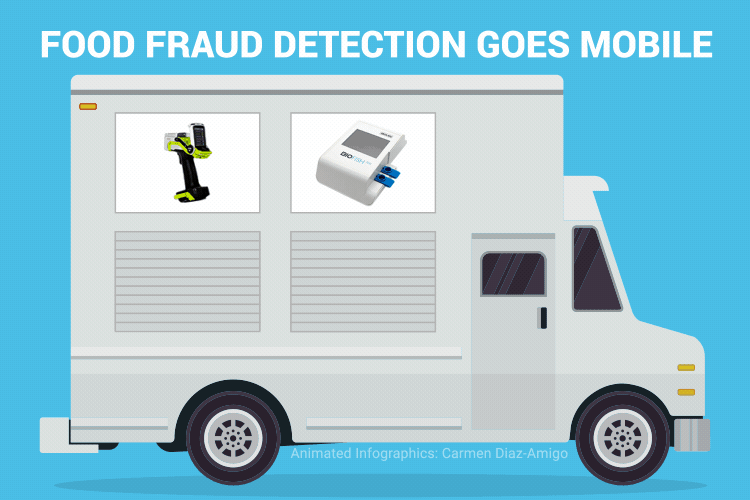
One of the biggest issues in food fraud is that you never know which adulterants have been used. Sometimes they are well known (the so-called known-known adulterants), like formaldehyde for milk. In other cases, they are not typically used for adulterating a particular matrix, but are known, although not expected in this matrix (the so-called known-unknowns). The worst-case scenario is when an adulterant is entirely unknown (unknown-unknowns). How to detect the known-unknowns and unkown-unknowns?
What if there was a device able to profile a material/ingredient? What about if a device could detect melamine in dairy in seconds, anywhere, anytime – without the need to go to a laboratory? That would be great, right? The good news is: such device already exists!
Curious?
If you want to get the full story, attend our session “Food Fraud Goes Mobile” on Tuesday, September 10, 10:15-11:45, in the Grand Ballroom 2.
For more information about the AOAC Annual Meeting and the link to register, click this link.
Follow un on LinkedIn and Twitter:
#FraudDetection2Go
#AOAC2019AM








